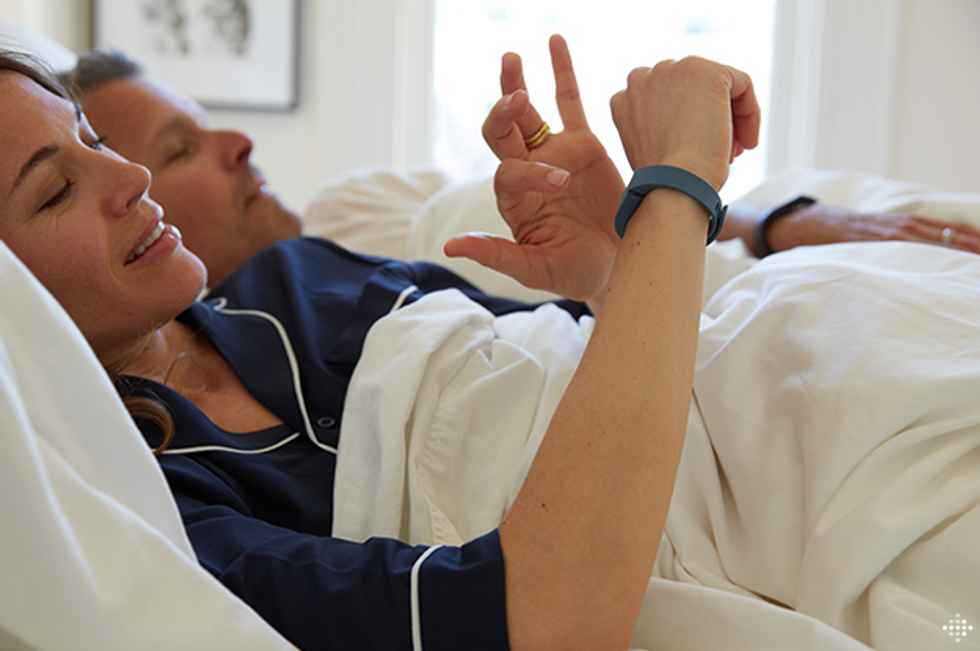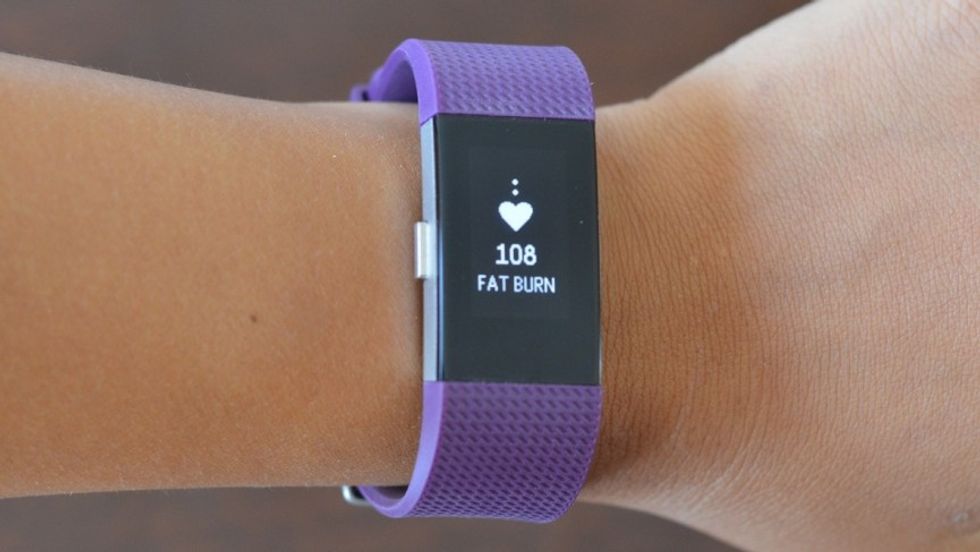Fitness and exercise are something that we are all told to do in order to improve our health and essentially stay alive. But exercise is not something that can be fun or something that most people would want to do on a whim. While there are people that most certainly love working out and exercise, I think it’s safe to say that many people, myself included, are not actively wanting to exercise and workout. The solution for both types of people? Getting a fitness watch or band. While we know that the big smartphone companies like Apple and Samsung have smartwatches that are mainly used with a phone but also tout an aspect of fitness monitoring as a side feature, there is one company that is dedicated solely towards fitness and keeping us all healthy: Fitbit. With over 23.2 million users and activity in order 50 different countries, Fitbit has become somewhat of a phenomenon that has motivated millions of people to get up and move!
I got my first Fitbit two years ago, as a Christmas present. Since then, I have had one objective: get at least 10,000 steps a day. Fitbit and the American Heart Association recommend taking at least 10,000 steps a day in order to maintain a healthy lifestyle. My first Fitbit was a first-generation Charge HR. The Charge HR touted being able to accurately measure heart rate while resting and even identify the specific type of exercise that was being done while it was happening. I will admit, having the HR was really cool; I was able to measure my heart rate at any given time. When I was nervous for a presentation or speech, I noticed that my resting heart rate went up,or when I was just sitting in class, my heart rate was at a normal level.
However, tragedy struck last November, as my precious fitness companion started to fall apart and eventually gave up on me by not wanting to sync with my phone or even charge. Christmas came around, and I upgraded to an Alta. While this Fitbit could not measure my heart rate or count how many floors I climbed every day, it still managed to keep up with me. I don't ever take it off, which is not recommended, but it's definitely a prominent feature or aspect of me, as even my profile picture proudly displays my Fitbit on my arm. With eight different types of fitness trackers to choose from, there is a Fitbit for everyone. Here are some other notable features:
Monitoring Sleep
- Depending on the Fitbit that you get, the fitness bands can actually track how well you sleep. This is probably one of my favorite features because it lets me know how much sleep that I am getting every night. I can honestly admit this; I am a restless person when I sleep, and I don’t think I would have really known that is what I was doing, which I can thank partly to my Fitbit.
Exercising with Friends
- A continually updating feature/aspect of Fitbit is the community that you can build with your friends and other Fitbit users. There is a general page where all of your friends who are active on Fitbit can automatically upload their step count, which is then tracked in a sort of unofficial competition that is displayed in the app. If you want to make it more intense with a few friends, then you can engage in challenges such as Daily Showdown, Weekend Warrior, or Workweek Hustle. There is even a cool badge/trophy system, in which Fitbit gives you a virtual trophy for winning challenges and also gives you badges for different accomplishments, like walking the same distance as the entire length of Japan, for example.
Tracking Food/Water Consumption
- A feature that I personally do not use a lot, the food and water tracking function of Fitbit is a quick way for users to track how many calories and how much water that you consume on a given day. Even though doctors say that exercise is one of the most important things that we can do for our health, there is that other thing that our doctors always say: eating right. Diet, along with exercise, is the key to living a good life. (Geez, now I sound like a doctor and all of those medication ads)
It can potentially save your life.
- If you hadn’t heard already, there was a recent article that stated that an elderly woman was able to save her own life by detecting an unusually high resting heart rate, which convinced her to go check in with her doctor. Turns out she a blood clot that would have killed her if she hadn’t realized it in time. While we cannot definitively say that all of our Fitbits will be able to save our lives, it is comforting to know that there is another tool in our arsenal to help us if something happens.
While I will admit that Fitbit has its drawbacks, such as the act of simply moving your arm being counted as steps, it has definitely motivated me to work out more. I am competing with my friends daily, and my work gives me a lot of steps.
























